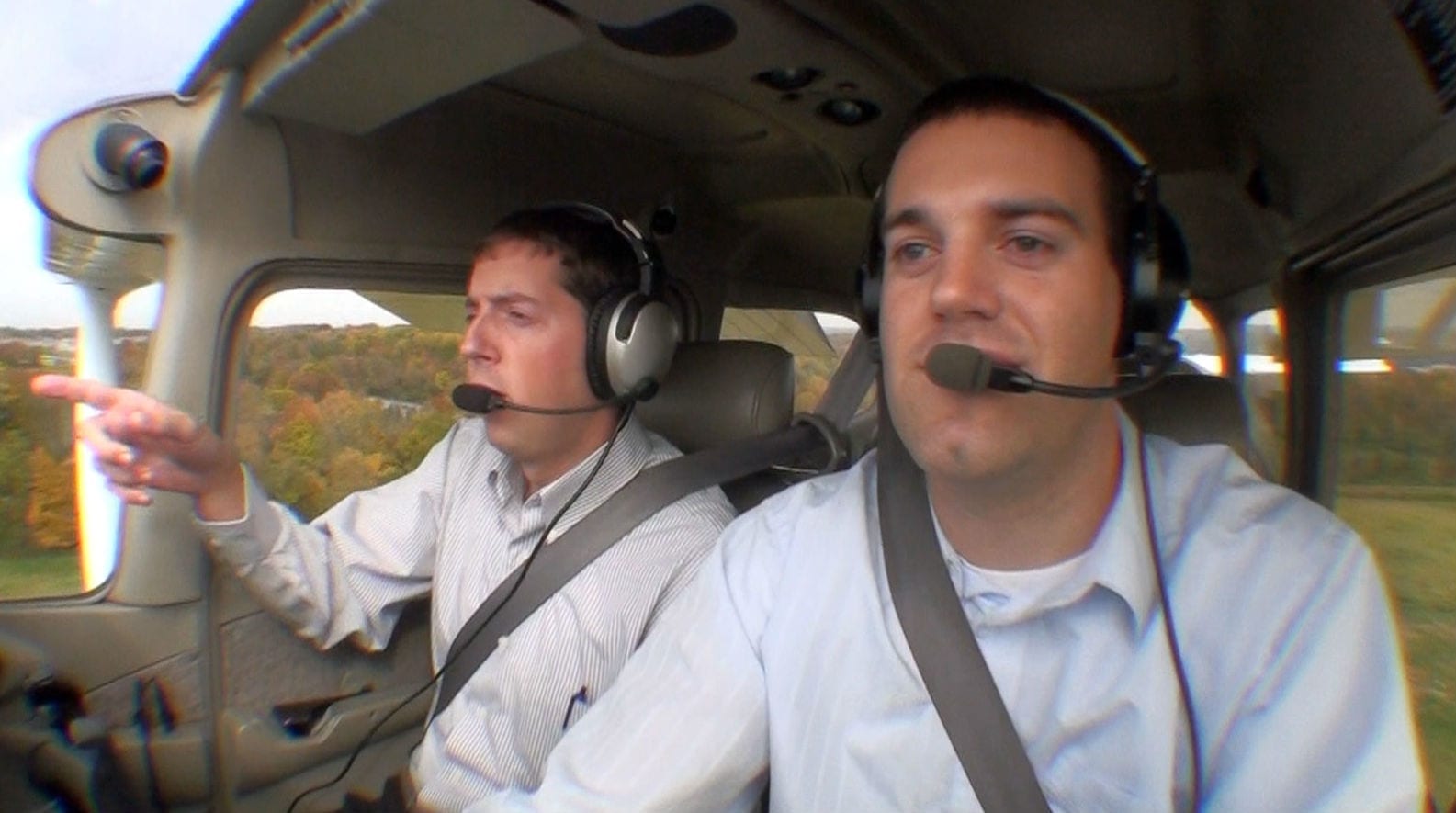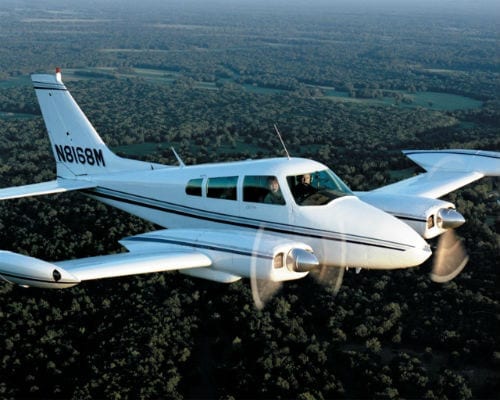“Boy, he sure is a great pilot.” We’ve all heard some version of this, usually standing around the airport as someone passes judgment on a fellow aviator. And most pilots can think of at least one historical figure who qualifies as a “great pilot,” whether it’s Charles Lindbergh or Bob Hoover.
But what exactly is a “great pilot” and how do you become one? Is it all about experience and training or does it come down to natural ability? Does it have more to do with decision-making or stick and rudder skills? Or do you simply know it when you see it?
Share your opinion below.
- The pros and the cons: Cirrus SR22 - January 13, 2025
- Christmas reading list: 24 books for pilots to read in 2024 - December 6, 2024
- Weather flying means learning to read clouds - November 11, 2024












It is a mixture of natural talent, decision making, and the personal makeup that makes a pilot work harder at acquiring skills than other pilots. So, in my opinion it cannot be determined as “natural talent” or “training” but instead the total package that is the pilot. That said, there are people who shouldn’t fly as PIC. They simply don’t have enough of the minimum qualities necessary to be a competent pilot. I remember one such person from ground school for my ppl. She seemed to think she knew everything in the classroom but when it came to the cockpit she was nothing short of dangerous and the instructors kept passing her around until finally she was encouraged to do something else for a career. Just my 2 cents…
So a proficient pilot is one who can satisfactorily pass all the requirements of a FAA test. A great pilot is one that goes above and beyond proficiency. But that doesn’t mean that he/she will survive an emergency. There is no defined moment or set of standards that makes someone great.
Lindberg was a person who was always seeking to improve himself, remember the story when he flew into an airfield one time and as he was turning his aircraft around, he blew dirt all over other pilots. He was chastized, but he learned. He also was a planner. His crossing of the Atlantic successfully was due in large part because he spent much time researching, not only aircraft, but navigation. There is also some “natural ability”, just like some are great athletes, some are great musicians. But most who attain to “great” work very hard to achieve that.
There is a difference between a natural pilot and a great pilot. A natural pilot has a great feel for his airplane and takes to the task of piloting an airplane easily and naturally. These kinds of pilots make great fighter pilots or aerobatic pilots, and they are too often bold pilots. However, even this ability does not make a great pilot. As the saying goes, there are old pilots and bold pilots, but there are not old, bold pilots. Without adequate training and practice, good decision making skills aren’t necessarily there. I was (I guess I still am) a natural pilot, but, until I had some seasoning and some good training, I sure did some stupid things in an airplane. I’m probably lucky to be alive, because my piloting skills far exceeded my decision making skills for a very long time. Now, I’m an old pilot, but I’m no longer bold. I know my limitations, something that I didn’t know for a very long time. Every aviation program needs to spend far more time on decision making skills before allowing a pilot even to solo than they do now. A lot more examination of the pilot’s decision making skills needs to be made on the private pilot and instrument exams. By the time one goes to multi or high performance aircraft, they still need to spend more time on decision making than on flying. That’s my opinion, and I’m sticking to it.
Dear Len Forster,
Truer words were never spoken, nor with greater significance. I too can attest to my being lucky to be alive when I think back upon it; although, when I could afford to pay for more air time, I did indeed get both better and wiser with time. Decision-making skills ARE the key to seperating the men from the boys -regardless of their particular age. Kudos to you for having the guts and insights to point this fact out. There are far too many prideful, ego-driven pilots out there, but also some great human beings, as well,who I’ve known as well.
Thanks for the kind words, Matt. I think many of us, both from a military and general aviation background, are lucky to be alive, but there are far too few of us who are willing to admit it.
I think most pilots are conscientious and safety conscious, but, sometimes, lack of experience makes them believe that they are better pilots than they are.
One of the things that has always concerned me about general aviation is the “rich doctor” type, who, because he can afford it, goes out and buys a twin, gets his multi-engine ticket, then promptly goes out and kills himself.
This has to be more a function of bad decision making than it does of bad aircraft maintenance, weather, or whatever. The decision to buy the twin was itself not a good one, so the end result shouldn’t really be surprising.
I flew heavy twins and C-130s in the military, but, as a general aviation pilot, I have always preferred a single.
With a twin, if you lose an engine, you have a powered rock that is a pain in the butt to control. The least mistake can cost you dearly.
Unless you have spent 4 hours a month (minimum) for years working on emergency and engine-out procedures (decision making), you have (in my opinion) a slightly less than even chance of survival. Most of us don’t have the time, let alone the discipline, to spend 4 hours a month practicing our decision making and reflex skills.
In a single, if you lose an engine, you have a glider. As long as you don’t stall it, you have a much better than even chance to survive.
I am a great believer in air safety programs that teach air safety and good decision making. I am also a great admirer of good pilots who know their limitations.
I used to shoot instrument approaches down to the allowable minimums (or less) all the time. Twenty years ago, I decided my minimum ceiling was going to be 1600 feet.
Now, at age 67, I prefer not to suffer the aggravation of an instrument flight, but, if I have to, I will fly IFR, but my 1600 foot ceiling limitation remains in effect. If a ceiling of at least that much doesn’t exist at my destination or alternate, it’s a no-go, as far as I’m concerned. Know your limitations.
Hi len.
Just want to comment on how you said that there are programs that teach good decision making skills. I believe that no one can teach you those skills but give you pointers in that direction. My one time “danger” moment was when I took a family member up. I didn’t feel comfortable with the ceiling height but I had flown in it with an instructor before (of course it’s completely different when you are PIC). As we lifted off, I found the cloud was much lower, only about 700ft AAL. I didnt panic, decided instead of rushing and trying to put her down on the RWY again (plenty of length left), I did a close circuit and everything went uneventful. I learnt from that experience and definately guided me to my personal minima. As you say, know your limits, and I completely agree. I may have taken what you meant wrongly, and I apologize, but they are my thoughts.
Bernard, I can’t disagree with what you’re saying, but, believe it or not, there are programs to teach decision making but throwing curves at you. That’s what simulator programs for heavy aircraft are meant to teach, but even those programs can’t cover every eventuality. The best decisions are always the ones we learn to make out of personal experience, but the price of that personal experience is sometimes too too high.
(It didn’t let me reply to your reply)
Hi Len
Yes quite true. It is all different when you know you are going home tonight after you have crashed/dealt with an emergency than when it is a real life and death situation. I definitely agree, the price is too high.
“Born or created” is a great enigma for every flight instructor. I see people everyday who overcome a lack of “native talent” with passion and perseverance (but some “native talent” is a wonderful gift). Rather than being one item that makes a “natural” however I would argue it is a whole constellation of both physical and mental skills. “Good hands” without a “good brain” to tell you when *not* to fly is the most dangerous. I have also had the “bulldozer Bob” phenomenon where someone can perform the physical skill immediately and almost effortlessly but is your classic “box of rocks” upstairs. My former chief pilot used to say flying required a three legged stool of skill, knowledge and judgment. If you lacked any of the three you were unstable and dangerous. We all have our privileged domains and compensate for our weaknesses, I think the most important skill is knowing your own abilities, self-analyzing and improving the weak areas without the far to common “pilot ego” to interfere.